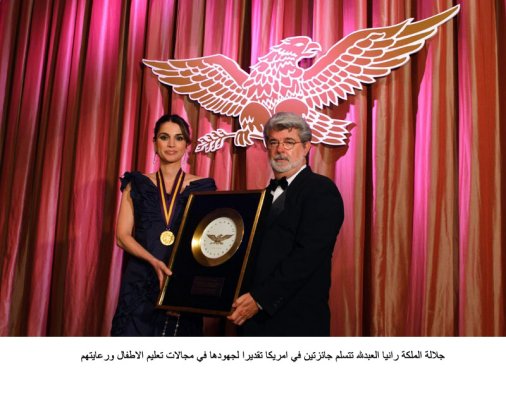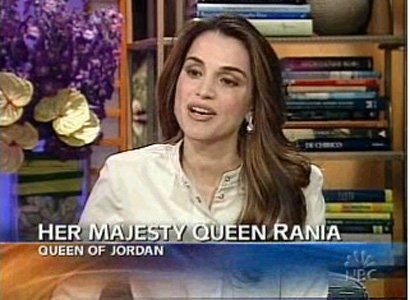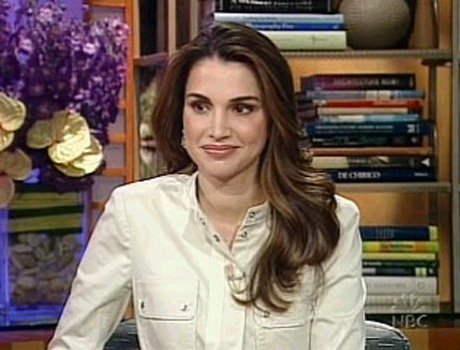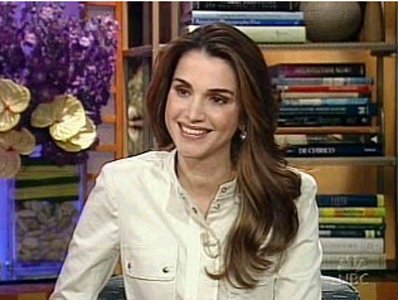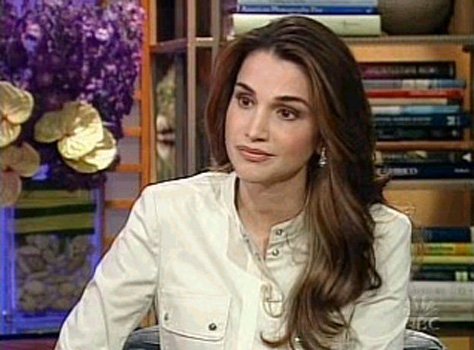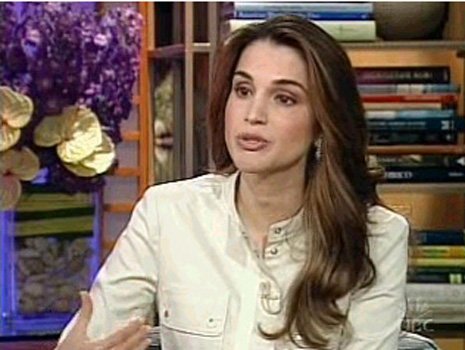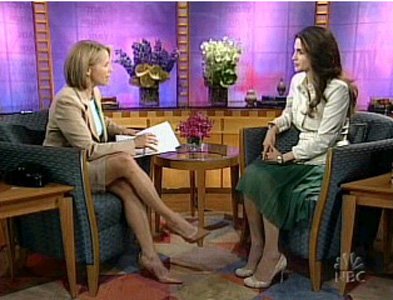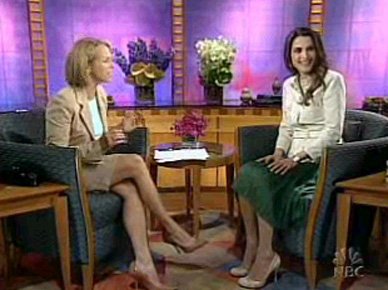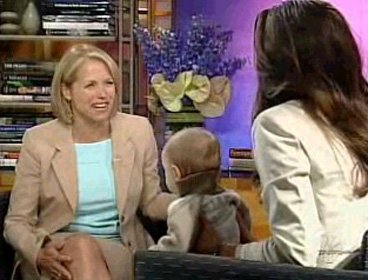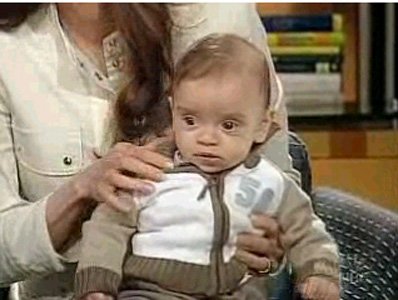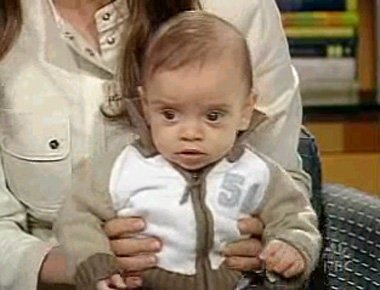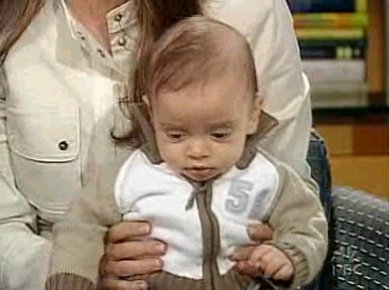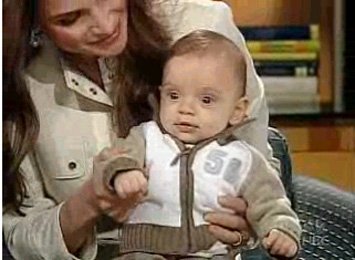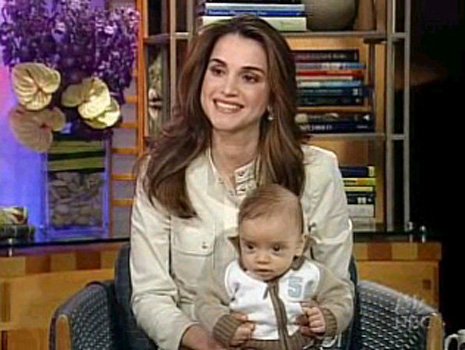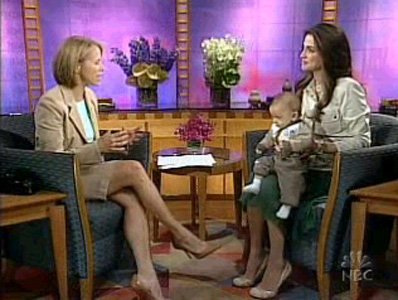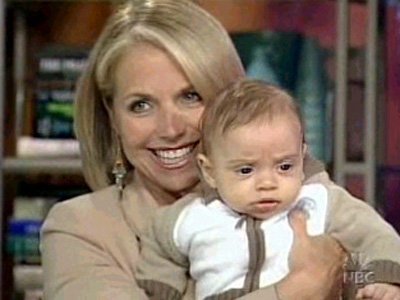~*~Humera~*~ said:
oh no I missed it!
I had a feeling she'd do one of the morning shows and was hoping to make screen caps

INTERVIEW: Jordan's Queen Rania on U.S.-Arab relations Written by Angelina Saturday, 04 June 2005
Young royal talks with 'Today' host Katie Couric about her country's progress and how to improve U.S. image in the region
The world's youngest queen, Her Majesty Queen Rania of Jordan, is back in the U.S. after a two-year absence. She recently played host to first lady Laura Bush and former President Bill Clinton on their visits to Jordan. She sat down with "Today" host Katie Couric to talk about the impact Laura Bush's visit had on the region, and the U.S. reputation in the Middle East.
Katie Couric: Nice to see you.
Rania: It's nice to see you; it's great to be back. It really has been a while.
Couric: It's a pleasure to have you as always.
Rania: Thank you.
Couric: And tell me, you haven't been back to the states for two years.
Rania: Just under two years, and during that time I had my baby.
Couric: Your fourth.
Rania: He's my fourth and he's four months old today, so it's been an eventful year for me.
Couric: It's hard to believe that you and your husband, King Abdullah of Jordan, took the throne six years ago. What, in retrospect, has been the most challenging part for you as queen?
Rania: Well you know, it's been six years, as you say, but it really feels like 20. So much has happened in the world ever since. We had, early on, the uprising in Palestine, and then there was 9/11 as you know, and then there was the war in Iraq. But throughout that time I think Jordan remained very steadfast in its progress. At the very beginning my husband defined his vision for Jordan. He wanted economic, political and social reform for our country; he wanted to overhaul the educational system. He wanted to have more empowerment for women, and a lot of progress has been achieved during that time.
Couric: Did you enjoy hosting the first lady of the United States at the World Economic Forum?
Rania: It was great. She carries a lot of goodwill wherever she goes, and I think having her there, bringing the American point of view to our part of the world and showing that she really cares and that she's interested, resonated really well in our part of the world.
Couric: She discussed equal rights or equal opportunities for women and how an important role for women is absolutely essential to a vibrant democracy, didn't she?
Rania: Absolutely, and that is something we completely agree on. You know, it's crucial for us to make sure that our women are as active in society as they can be, and today Jordanian women are definitely more active then they were, say, six years ago. So progress is being made, but we're still not there yet. There are still a lot of cultural stereotypes that have to be changed.
Couric: Are they stereotypes, or are there some women who don't want to progress? Who'd rather stay in more traditional roles, who feel very strongly about that?
Rania: If some women feel that way then that's their choice, but our job is to give them that choice. So if a woman wants to get out and work and wants to be active, whether it's on the political level or in the private sector, she should have the opportunity to do that.
Couric: Your country, your husband, King Abdullah, and you have really been a bridge between the U.S. and much of the Arab world. And yet there still remains so much anti-American sentiment. At least it appears that way. What things do you think should be done or could be done to reduce the vitriol, anger and resentment that many Arabs feel towards the United States?
Rania: I think the first step would be to understand why those feelings exist. And when we say to understand why, that doesn't mean that we justify them or think that they are right. So for example, people think in the Palestinian-Israeli issue, the United States favors Israel over the Palestinians. They feel that the United States is in Iraq to gain a foothold in Iraq and to control some of the resources there. I think this is the reason some people view it this way.
Couric: But they are such entrenched attitudes. How can that change? How can the United States reach out to the Arab population?
Rania: Understanding that these are the reasons why these feelings exist. I think it's very important to reach out and explain the U.S. point of view. For example, when Mrs. Laura Bush came to Jordan, she was received so well. We visited a school together, we looked at some of the programs they are applying in the schools, and these were in joint effort between the U.S. and Jordan. When she walked into the school, she really received a hero's welcome because of the efforts the students saw, the fruits of the relationship with the United States and how positive that was. They saw goodwill demonstrated from the U.S.
Couric: I know Mother Theresa once said that world peace — I'm paraphrasing — starts with loving your own family, and with that in mind we have your new baby. I've never held a prince before.
Rania: There's my little baby.
Couric: This is Prince Hashim?
Rania: This is Hashim, Prince Hashim, he is four months.
Couric: He looks like your husband, what do you think?
Rania: He looks exactly like my husband; he was born on his birthday, which saved me from having to buy him a present, by the way.
Couric: Yeah, I think that's plenty of work. Happy birthday, honey.
Rania: And this is his first trip to the U.S.
Couric: Well, he's adorable. Queen Rania of Jordan, it's always so wonderful to talk with you.
Rania: It's an absolute pleasure to be here, Katie.
Couric: Thank you for coming by and I think conversations like this can really help bridge the gap.
Rania: I hope so. [Baby gurgles]
Couric: Oh, he agrees.
Rania: Yes, he does, he has his own points of view.
NBC Today show, June 3, 2005



